Lili is a 1953 American film released by MGM. It stars Leslie Caron as a touchingly naïve French girl whose emotional relationship with a carnival puppeteer is conducted through the medium of four puppets. The screenplay by Helen Deutsch was adapted from "The Man Who Hated People", a short story by Paul Gallico which appeared in the October 28, 1950, issue of The Saturday Evening Post.
| Lili | |
|---|---|
| Directed by | Charles Walters |
| Produced by | Edwin H. Knopf |
| Written by | Helen Deutsch Paul Gallico (story Love of Seven Dolls) |
| Starring | Leslie Caron Mel Ferrer Jean-Pierre Aumont Zsa Zsa Gabor |
| Music by | Bronis?aw Kaper Gerald Fried (uncredited) |
| Cinematography | Robert H. Planck |
| Edited by | Ferris Webster |
| Distributed by | Metro-Goldwyn-Mayer |
Release date |
|
Running time | 81 minutes |
| Language | English |
| Budget | $1,353,000 |
| Box office | $5,393,000 |
It won the Academy Award for Best Music, and was also entered into the 1953 Cannes Film Festival.
Following the film's success, Gallico expanded his story into a 1954 novella entitled Love of Seven Dolls. The film was adapted for the stage under the title Carnival! (1961).
Screenplay
Naive country girl Lili (Leslie Caron) arrives in a provincial town in hopes of locating an old friend of her late father, only to find that he has died. A local shopkeeper offers her employment, then tries to take advantage of her. She is rescued by a handsome, smooth-talking, womanizing carnival magician, Marc, whose stage name is Marcus the Magnificent (Jean-Pierre Aumont). Lili is infatuated with him and follows him to the carnival, where on learning that she is 16, he helps her get a job as waitress. Lili is fired on her first night when she spends her time watching the magic act instead of waiting tables. When Lili consults the magician for advice, he tells her to go back to where she came from. Homeless and heartbroken, she contemplates suicide, unaware that she is being watched by the carnival's puppeteer Paul (Mel Ferrer). He strikes up a conversation with her through his puppets—a brash red-haired boy named Carrot Top, a sly fox, Reynardo, a vain ballerina, Marguerite, and a cowardly giant, Golo. Soon, a large group of carnival workers is enthralled watching Lili's interaction with the puppets, as she is seemingly unaware that there is a puppeteer behind the curtain. Afterwards, Paul and his partner Jacquot (Kurt Kasznar) offer Lili a job in the act, talking with the puppets. She accepts, and her natural manner of interacting with the puppets becomes the most valuable part of the act.
Paul was once a well-known dancer, but suffered a leg injury in World War II. He regards the puppet show as far inferior to his old career, which embitters him. Lili refers to him as "the Angry Man". Although he falls in love with Lili, he can only express his feelings through the puppets. Fearing rejection due to his physical impairment, he keeps his distance by being unpleasant to her. Lili continues to dream about the handsome magician, wishing to replace his assistant Rosalie (Zsa Zsa Gabor).
Soon, Marcus receives an offer to perform at the local casino and decides to leave the carnival, to the joy of Rosalie, who announces to everyone that she is his wife. Lili is heartbroken and innocently invites Marc to her trailer. His lecherous plans are interrupted by Paul, and he leaves. When Lili finds Marc's wedding ring in the seat cushions and tries to chase him, Paul stops her, calls her a fool, and slaps her.
Two impresarios from Paris who have been scouting the show come to see Paul and Jacquot. They recognize Paul as the former dancer and tell him that his act with Lili and the puppets is ingenious. Paul is ecstatic about this and the offer, but Jacquot tells the agents that they will have to let them know. He then tells Paul that Lili is leaving.
Lili takes the wedding ring to Marc and tells him that every little girl has to wake up from her girlish dreams. She has decided to leave the carnival. On her way out, she is stopped by the voices of Carrot Top and Reynardo, who ask her to take them with her. As they embrace her, she finds they are shaking. She remembers somebody is behind the curtain and pulls it away to see Paul. Instead of telling her how he feels, he tells her of the agents' offer. She confronts him about the difference between his real self, seemingly incapable of love, and his puppets. He tells her he is the puppets, a creature of many facets and many flaws. He concludes by telling her, "This is business." "Not any more," retorts Lili, who walks away.
Walking out of town, she imagines that the puppets, now life-sized, have joined her. As she dances with each puppet in turn, they all turn into Paul. Coming back to reality, Lili runs back to the carnival and into Paul's arms. They kiss passionately as the puppets applaud.
- Leslie Caron – Lili Daurier
- Mel Ferrer – Paul Berthalet
- Jean-Pierre Aumont – Marc
- Zsa Zsa Gabor – Rosalie
- Kurt Kasznar – Jacquot
- Amanda Blake – Peach Lips
- Alex Gerry – Proprietor
- Ralph Dumke – Mr. Corvier
- Wilton Graff – Mr. Tonit
- George Baxter – Mr. Enrique
Puppets
Walton and O'Rourke, famous in puppeteering circles, made the puppets. They mostly worked in cabarets and did not appear on television. Lili is among the few known filmed records of their work which also includes the Walter Lantz cartoon and live action short film, Oswald the Lucky Rabbit: Puppet Show (1936).
Walton and O'Rourke manipulated Marguerite and Reynardo, George Latshaw was responsible for Carrot Top, and Wolo Von Trutzschler handled Golo the Giant. According to Kukla, Fran and Ollie director Louis Gomavitz, Burr Tillstrom was approached to create puppets for the film, but turned it down.
Music
The score was composed by Bronis?aw Kaper and conducted by Hans Sommer, with orchestrations by Robert Franklyn and Skip Martin. Kaper's music received the Oscar for "Best Music, Scoring of a Dramatic or Comedy Picture."
Lyrics for the song "Hi-Lili, Hi-Lo" were written by Helen Deutsch for her previously published short story "Song of Love". Kaper's setting of the song was performed by Caron and Mel Ferrer in the film; the performance was released on record and reached number 30 in the American charts.
Four excerpts from the score were first issued by MGM Records at the time of the film's release. The complete score was issued on CD in 2005, on Film Score Monthly records.
The New York Times included it in their 2004 Guide to the Best 1,000 Movies Ever Made, as did Angie Errigo and Jo Berry in a 2005 compilation of Chick Flicks: Movies Women Love.
Bosley Crowther, reviewing the film at its opening, had nothing but praise for the movie, rejoicing that "at last Leslie Caron's simplicity and freshness... have been captured again in the film." He showered other encomia on Caron, calling her "elfin", "winsome", the "focus of warmth and appeal", praising her "charm, grace, beauty, and vitality." He said screenwriter Helen Deutsch had "put together a frankly fanciful romance with clarity, humor, and lack of guile," and admires the choreographer, sets, music, and title song.
The film was not universally liked, though; Pauline Kael called it a "sickly whimsy" and referred to Mel Ferrer's "narcissistic, masochistic smiles."
According to MGM records, the film earned $2,210,000 in the US and Canada and $3,183,000 overseas, resulting in a profit of $1,878,000, making it MGM's most popular musical of the year.
Academy Awards
- Wins
- Best Music (Music Score of a Dramatic or Comedy Picture): Bronislau Kaper
- Nominations
- Best Director: Charles Walters
- Best Actress: Leslie Caron
- Best Writing (Screenplay): Helen Deutsch
- Best Cinematography (Color): Robert Planck
- Best Art Direction (Color): Art Direction: Cedric Gibbons, Paul Groesse; Set Decoration: Edwin B. Willis, Arthur Krams
The Man Who Hated People (short story)
The Man Who Hated People appeared in the October 28, 1950 issue of The Saturday Evening Post. It is lighter in tone than other versions of the story. In particular, the abuse heaped by the puppeteer on the innocent "girl" is emotional and verbal. Unlike the novel The Love of Seven Dolls, the short story does not even hint at physical or sexual abuse.
The story opens in a New York City television studio where Milly, a "sweet-faced girl with slightly harassed expression," is about to make her farewell appearance on the Peter and Panda show.
Peter and Panda are part of an ensemble of puppets; they are a leprechaun and a panda respectively; other puppets include Arthur, a "raffish crocodile;" Mme Robineau, a French lady "of indeterminate age with dyed hair;" Doctor Henderson, a penguin; and Mr Tootenheimer, a toymaker. They are all operated by a single puppeteer, named Crake Villeridge. Despite being a puppet show, it has, like the real-life Kukla, Fran and Ollie TV show, a huge audience of all ages. Also like Kukla, Fran and Ollie, there is no script: "it's all ad-libbed". (In fact, the illustration included with the story features the actual stage used for Kukla, Fran and Ollie.) At the end of the show, "millions watching felt a sense of loss as though a family close to them were breaking up."
Milly has been with the show two years, and, as in other versions of the story, she interacts in a spontaneous and endearing way directly with the personae of the puppets. In a flashback, during her audition, she had met and talked to the puppets before meeting any human being. Not realizing that this encounter was her audition, she is surprised when a station representative meets her and tells her "Your performance this afternoon came closest to what wants." She says "But it actually wasn't a performance", and is told "Exactly. The first time you start giving a performance, you're through."
Villeridge, we learn, is French Canadian, and had once been headed for a serious career as a hockey player. In an accident, two men "skated over the side of his face," ending his hockey career, and seriously and permanently disfiguring him.
She soon learns that Villeridge is emotionally an abuser. She loves the on-air performances, loves the puppets and their personalities, and finds Mr Tootenheimer, the wise old toymaker, particularly comforting, but she hates Villeridge and what he does to her in rehearsal and after the show. He shouts at her, demeans her, criticizes everything she has done, and humiliates her in front of the program staff. When she meets a nice man named Fred Archer and believes she is "a little in love" with him, she decides she can no longer stand Villeridge and his tyrannical ways. She announces that she is marrying Archer and gives notice.
After her farewell show, she changes into her street dress. She waits for everyone else to leave the studio, afraid of encountering Villeridge, who "might be waiting for her with one last attack." As she leaves, she hears the voice of Arthur, the puppet, who says, "I stayed behind. Milly, take me with you." Soon she is talking to Arthur and the other puppets. Mr Tootenheimer, the "old philosopher", explains to her that every man is composed of many things, and that the puppets represent aspects of Villeridge's real personality:
- And if a man who has been cut and scarred and is ashamed of his appearance, who loved you from the first time his eyes rested upon your face, could be a brutal fool, believing that if you could be made to love all of the things he really was, you would never again recoil from the things he seemed to be.
Millie cries "Crake! Crake! come to me." They embrace, and Milly decides to say goodbye to "the outside world—reality—Fred Archer" and live with Villeridge and his created "Never-Never Land of the mind."
Love of Seven Dolls
"In Paris in the spring of our times, a young girl was about to throw herself into the Seine." Thus opens the novella from which the film Lili and the musical Carnival was drawn.
The Paul Gallico short story from which Lili was adapted was published in expanded form in 1954 as Love of Seven Dolls, a 125-page novella. The New York Times review of the book opens "Those audiences still making their way to see Lili may now read the book from which this motion picture was adapted." The original short story was clearly based on the popular television puppet show Kukla, Fran and Ollie, as it takes place in a television studio (not a carnival as in the film and book), and has many characters based on the Kuklapolitans. The novella was far more mystical and magic than the short story. Brett
Watch movie Lili online on Amazon
Watch movie Lili online
Watch The Movie On PrimeUnnikale Oru Kadhaparayam Full HD Movie Download
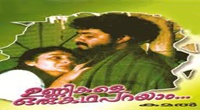
Shradhanjali Full HD Movie Download
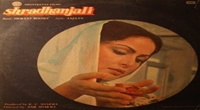
Zabak Full HD Movie Download
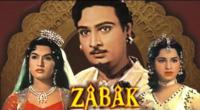
Baat Ban Jaye Full HD Movie Download

Mirza Ghalib Full HD Movie Download

Mahabali Hanuman Full HD Movie Download
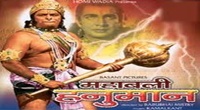
Mawaali Full HD Movie Download
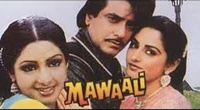
Ram Aur Shyam (1996) Full HD Movie Download
.jpg)
Hum Dono (1995) Full HD Movie Download
.jpg)
Yalgaar Full HD Movie Download

Vat Pahte Sunechi Full HD Movie Download

Bhagawan Shree Krishna Full HD Movie Download

Summer School Full HD Movie Download

Vaddante Dabbu Full HD Movie Download
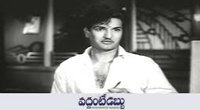
Sri Raja Rajeshwari (Telugu) Full HD Movie Download
.jpg)
Chottanikkara Amma Full HD Movie Download
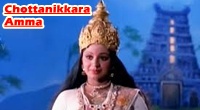
Love Game Full HD Movie Download

Muddhai Full HD Movie Download

Sree Lekha Full HD Movie Download
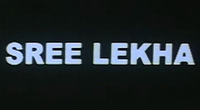
Guna Sundari Katha Full HD Movie Download

Kaadal Mannan Full HD Movie Download
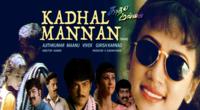
Download latest Movie from bollywood
- 1> baaghi 3
- 2> THE SKY IS PINK MOVIE FULL STORY AND REVIEW
- 3> Luka Chuppi
- 4> TO ALL THE BOYS I’VE LOVED BEFORE
- 5> Kabir Singh
- 6> Street Dancer 3D
- 7> Simmba
- 8> Gone Girl
- 9> The Girl Who Lived
- 10> Ludo
- 11> DILWALE DULHANIA LE JAYENGE
- 12> GUILTY
- 13> The Godfather
- 14> Adventures of Rusty
- 15> Sooryavanshi
- 16> Satyameva Jayate 2
- 17> Thappad
- 18> Bhool Bhulaiyaa 2
- 19> KGFChapter 2
- 20> Mardaani 2
- 21> Pinjar
- 22> Shivaji maharaj
- 23> Ek Villian 2
- 24> Hungama 2
- 25> Divergent
- 26> Mumbai Saga
- 27> The Internship
- 28> HIT (telugu)
- 29> Panga
- 30> The perfect date
- 31> 16 December
- 32> Gopala Gopala (Telugu)
- 33> Brahmastra
- 34> Gangubai Kathiawadi
- 35> Manmadhudu
- 36> Nenu local
- 37> Mahanati
- 38> Shatamanam bavathi
- 39> Lagaan
- 40> After
- 41> MOM
- 42> Shamshera
- 43> Raguvaran BTech
- 44> Khakee
- 45> The villain
- 46> OM
- 47> Mr. perfect
- 48> Bueatifull mind
- 49> Hichki
- 50> Gabbar Singh
- 51> Jogi
- 52> Before Sunrise
- 53> Before Sunset
- 54> Before Midnight
- 55> The Big Bull
- 56> Top Gun: Maverick
- 57> The Purge
- 58> The Sky is Pink
- 59> Laxmmi Bomb
- 60> Sadak 2
- 61> Sufna
- 62> Prithviraj
- 63> PK
- 64> Coolie No 1(2020)
- 65> Black Widow
- 66> Dear Zindagi
- 67> Dil Bechara
- 68> PHIR HERA PHERI
- 69> WAR
- 70> Dostana
- 71> RRR: Roudram Ranam Rudhiram
- 72> Maidan
- 73> Dabbang 3
- 74> Chhalaang
- 75> life as we know it
- 76> SherShaah
- 77> Sandeep Aur Pinky Faraar
- 78> Event Horizon
- 79> 83
- 80> Radhe: Your Most Wanted Bhai
- 81> Gunjan Saxena: The Kargil Girl
- 82> Mr India
- 83> Vivah
- 84> Anokha Bandhan
- 85> Ghost
- 86> Bhoot: Part One - The Haunted Ship
- 87> Haseen Dilruba
- 88> Laal Singh Chaddha
- 89> Qismat
- 90> Rajput
- 91> Drive
- 92> Dil Chahta Hai
- 93> Dil Ki Baazi
- 94> Dil Ka Rishta
- 95> Teesri Manzil
- 96> Dil
- 97> Love Aaj Kal
- 98> Khaali Peeli
- 99> Bunty Aur Babli 2
- 100> Atrangi Re
- 101> Gulabo Sitabo
- 102> Jodi
- 103> Suraj Pe Mangal Bhari
- 104> Deewana
- 105> Attack
- 106> Sardar Udham Singh
- 107> Toofan
- 108> THE LOVEBIRDS
- 109> Jersey
- 110> Ginny Weds Sunny
- 111> Thalaivi
- 112> Shiddat
- 113> Angels vs Zombies
- 114> Koi Mil Gya
- 115> Thank God
- 116> Bhuj: The Pride of India
- 117> Hum Aapke Hain Kaun
- 118> The Platform
- 119> Bird Box
- 120> Roohi Afzana
- 121> Torbaaz
- 122> Nikamma
- 123> World War Z
- 124> Extraction
- 125> Train to Busan
- 126> Life of Pi
- 127> SHAADI MEIN JROOR AANA
- 128> Himmat Aur Mehnat
- 129> To All The Boys: P.S. I Still Love You
- 130> Mimi
- 131> Good Newwz
- 132> Shubh Mangal Zyada Saavdhan
- 133> Raabta
- 134> Harry Potter and the Philosopher's Stone
- 135> Harry Potter and the Chamber of Secrets
- 136> Chhapaak
- 137> War of the Worlds
- 138> Harry Potter and the Prisoner of Azkaban
- 139> Harry Potter and the Goblet of Fire
- 140> MURDER MYSTERY
- 141> Shakuntala Devi
- 142> Bachchan Pandey
- 143> Jayeshbhai Jordar
- 144> Sheer Qorma
- 145> Saina
- 146> 'O' Pushpa I hate tears
- 147> Kedarnath
- 148> MS Dhoni The Untold Story
- 149> Chhichhore
- 150> Badhaai Ho
- 151> Unstoppable
- 152> Oz the Great And Powerful
- 153> The Girl on the Train
- 154> Haathi Mere Saathi 2020
- 155> The Conjuring: The Devil Made Me Do It
- 156> Gandhi Se Pehle Gandhi
- 157> The Song of Scorpions
- 158> Srimanthudu
- 159> Hello Guru Prema Kosame
- 160> Beauty and The Beast
- 161> Black Panther
- 162> Charlie and the Chocolate Factory
- 163> Bole Chudiyan
- 164> Fidaa
- 165> Duvvada Jagannadham
- 166> Bruce Lee: The Fighter
- 167> Hyper
- 168> Yaara
- 169> Red (2020)
- 170> Shivam
- 171> That Is Mahalakshmi
- 172> Nishabdham
- 173> Aashram 2020 web series
- 174> Laxmii
- 175> Mismatched
- 176> STUDENT OF THE YEAR 2
- 177> NAIL POLISH
- 178> Ramprasad Ki Tehrvi
- 179> KAAGAZ
- 180> 12 o Clock
- 181> The Power
- 182> bolo hau
- 183> Tribhanga
- 184> JAMUN
- 185> Madam Chief Minister
- 186> Maasaab
- 187> Aadhaar
- 188> Tanhaji
- 189> Bhaagi 3
- 190> Bhootnath
- 191> MALANG
- 192> Jai Mummy Di
- 193> Haathi Mere Saathi 2021
- 194> Shakeela
- 195> Unpaused
- 196> Annayya
- 197> Vamsoddharakudu
- 198> Mrugaraju
- 199> Narasimha Naidu
- 200> Sankranti
- 201> Manasu Maata Vinadhu
- 202> Anjaane
- 203> Apaharan
- 204> Bachke Rehna Re Baba
- 205> Bewafaa
- 206> Roohi
- 207> Radhe
- 208> Zindagi Khoobsoorat Hai
- 209> Yeh Mohabbat Hai
- 210> Yeh Kya Ho Raha Hai?
- 211> The Tomorrow War
- 212> DehradunDiary
- 213> Meri Shaadi Karaoo
- 214> Matruu Ki Bijlee Ka Mandola
- 215> No One Killed Jesica
- 216> Aag Ka Goola
- 217> Eight Million Dollars
- 218> Three Hundred
- 219> Cats and Dog
- 220> Decoy
- 221> Gold Rush
- 222> You Have Got Mail
- 223> Final Destination three
- 224> Tofan
- 225> Jungle
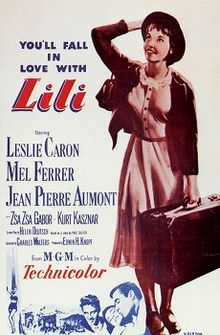 Story of movie Lili :
Story of movie Lili : 